This year’s Hurricane Season officially began on June 1, 2018. In a May blog post, Noble Public Adjusting Group offered our readers tips on how to prepare for a hurricane in Florida. Today we would like to take things one step further and offer advice for hurricane preparation when you have kids. After all, there are things parents in Florida need to do in preparation for a hurricane that people without children don’t need to consider.This information is courtesy of an article at Parents.com titled, Are You Prepared For a National Disaster? Hurricanes most definitely fit into the category of a natural disaster. The article was written by Wendy Sue Swanson, M.D., a pediatrician who is also a mom. There are three steps listed for parents to take to make sure their kids are safe during a hurricane.
Florida Hurricane Preparation When You Have Kids
Step One: Assemble an Emergency Kit
- Water. Be sure to have 3 gallons per person and per animal in your home. For example, for my family (Mom, Dad, two boys, and dog) we have 15 gallons. If you’re breastfeeding you’ll need more for hydration.
- Food. Buy canned, mostly high-calorie foods. Good choices are chili, tuna, veggies, and soup, as well as peanut butter, crackers, granola bars, cereal bars, and comfort foods like chocolate or candy. Buy foods with similar expiration dates to make it easier to refresh your kit. You’ll also want a powdered formula for babies and boxed milk for toddlers, and food for your pet.
- A “refresh” card that lists the contents of your kit and the dates that medication and perishables will expire
- First-aid kit. Standard kits usually cost around $25. You may need to add a couple pairs of gloves, and gauze, tape, and antibiotic ointment. First-aid kits typically don’t include over-the-counter medications, especially for children.
- Respirator/surgical masks to reduce exposure to airborne particles ($16 for 20; amazon.com)
- Diapers and wipes. Refresh your diaper size!
- Clothing. Have one complete outfit for each person, including sturdy shoes, a hat, and gloves. Remember to change this out as your kids grow. Put that on your refresh card.
- Children’s acetaminophen and a card with your infant or young child’s current dose (often the bottle doesn’t include it for kids under age 2). After each good visit, update your card with your child’s new dosing info.
- Medication. Get a seven-day supply of any prescription you or your child is taking. If your child is on an important daily med, ask your doctor for a one-week-supply prescription to fill for your kit. Add the expiration date of meds to your refresh card.
- Sunscreen (SPF 30 or higher)
- Manual can opener. What good is the food if you can’t get to it?
- Waterproof matches
- Fire extinguisher
- One large flashlight for each adult; one small flashlight for each child able to work it
- Batteries. Have enough for flashlights and a radio. Include a full set of replacements.
- Battery-powered or hand-crank radio
- Utility knife
- 12-inch adjustable wrench for turning off your gas line
- Whistles with lanyards so you can find each other in the dark
- A corded phone, which will still work when power is down. (Check Target or Wal-Mart.)
- Cash
- Chlorine bleach as a cleaner and sanitizer
- Hand sanitizer
- Tampons/pads
- Garbage bags
- Blankets. Have one for each person.
- Duct tape and plastic sheeting to keep out airborne chemicals. The tape should be at least 10 mils thick; the sheeting, at least 4 mils.
- Documents. Fill a waterproof bag with one copy of important documents including passports, bank-account and credit-card numbers, birth certificates, Social Security cards, and wills. You’ll want to protect them or take them with you if evacuation is necessary. You might add family memorabilia, such as irreplaceable photos.
- Fun stuff. Comfort your family or pass the time with a deck of cards, coloring books, stuffed animals, and puzzles or board games.
Step Two: Know Your Neighborhoods
Contact your local fire department and school to inquire about specific threats to your neighborhood such as unstable trees, streets prone to flooding, or transportation challenges. After gathering that info, it’s essential to figure out how your neighbors can work together in the event of an emergency. For example, if you’re a nurse or a teacher, you may have a comprehensive first-aid kit available, and if a carpenter lives on your street, he might have tools or equipment that would be useful in an emergency. Pool your expertise and resources. It will ultimately save lives.
Noble Public Adjusting Group hopes that parents in Florida will take advantage of this information. You may even want to print out this blog post and put it in a place where you can easily refer to it. We would love it if you would share this post on your social media page so that other Florida parents can also be prepared when a hurricane strikes Florida.
You noticed we say ‘when’ a hurricane strikes Florida, not ‘if’, for rest assured, Florida WILL experience at least one hurricane this season, most likely more than one. Noble Public Adjusting Group is ready to help you if you receive damages to your home this hurricane season. Right now is the perfect time to let us go over your homeowner insurance policy. This service is free.
Contact us today to discuss your policy, this blog post, or for any other concern or question you may have. Noble’s home office is in Panama City Beach, but we can handle an insurance claim anywhere in Florida.

